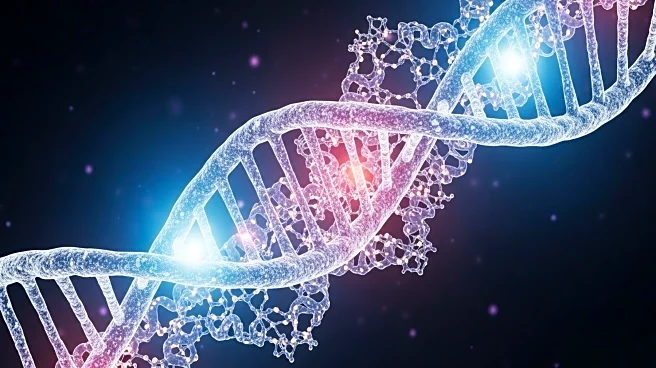What's Happening?
Bioengineers at the University of California San Diego have developed a new technology that maps RNA-protein interactions within human cells. This advancement allows scientists to capture a comprehensive network of these interactions, which are crucial for cellular processes such as gene regulation and stress response. The technology works by tagging proteins and chemically linking them to the RNA they bind, converting these pairs into unique DNA barcodes readable by sequencing machines. This method has uncovered over 350,000 interactions, including previously unknown ones, offering insights into diseases like cancer and Alzheimer's. The study, led by Professor Sheng Zhong, was published in Nature Biotechnology.
Why It's Important?
The ability to map RNA-protein interactions in detail is significant for developing new treatments for diseases such as cancer and Alzheimer's. By identifying specific interactions that contribute to disease progression, researchers can target these 'control knobs' with drugs, potentially blocking harmful interactions or enhancing protective ones. This technology provides a detailed view of the interaction regions, aiding in the design of targeted therapies. The findings could lead to new drug targets and treatment strategies, offering hope for more effective interventions in neurodegenerative and cancerous conditions.
What's Next?
The research team plans to apply this technology to disease models, including Alzheimer's and Parkinson's, to identify misfiring RNA-protein interactions that could be targeted for therapy. Further studies are needed to understand the biological roles of the newly discovered interactions and their implications for disease treatment. The comprehensive map created by this technology opens avenues for future research to determine which interactions drive disease and which are protective, guiding the development of next-generation therapies.
Beyond the Headlines
This technological advancement highlights the potential for bioinformatics and AI tools in understanding complex molecular interactions. The detailed mapping of RNA-protein interactions could lead to ethical considerations in drug development, particularly in targeting specific genetic pathways. The research is supported by the National Institutes of Health, emphasizing the importance of federal funding in advancing biomedical research.










